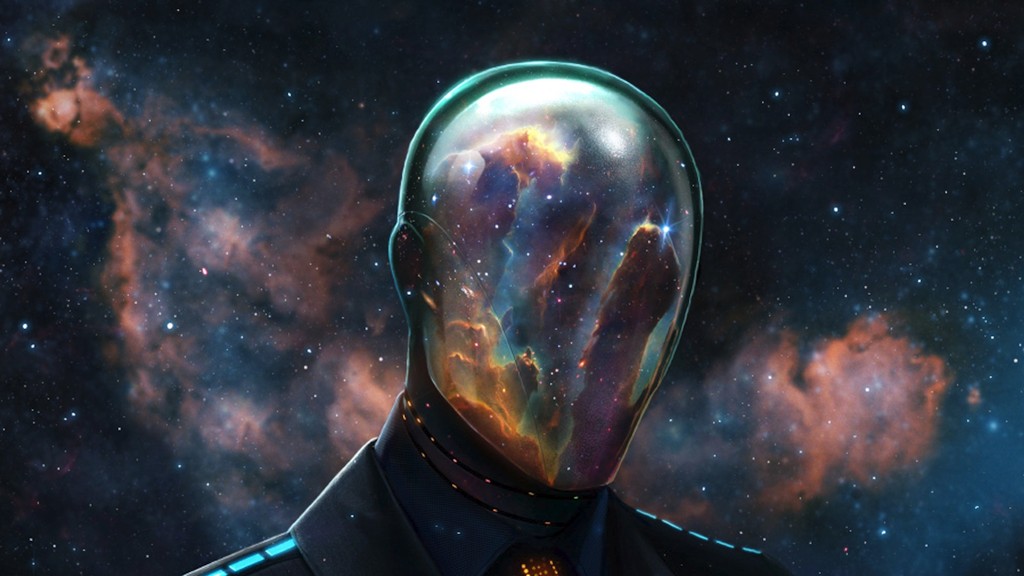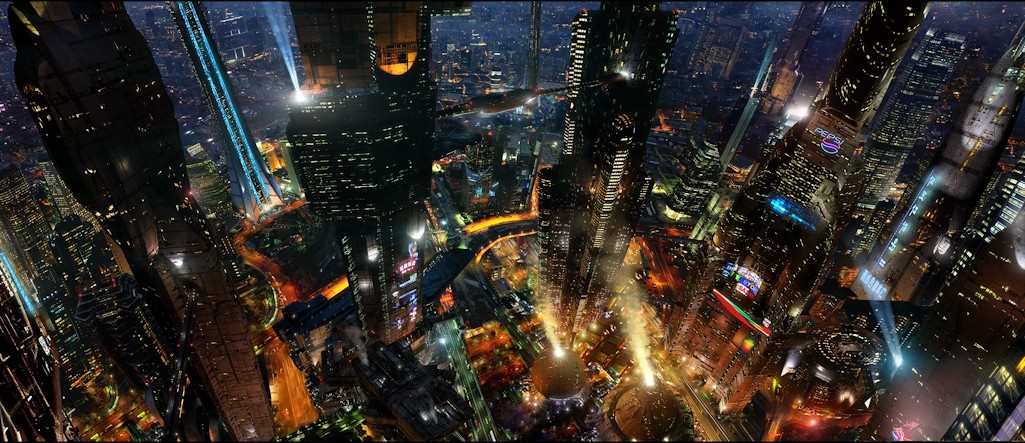Singularity, private law and crypto-anarchy

by Marie Dähnhardt
Keep in mind that the complexity of the subject makes a complete forecast impossible, which is why the text WILL contain errors. Nevertheless, the conclusions derrived from this essay are likely to be correct. It might appear noncredible to the majority of its readers, especially those not familiar with the Austrian School of Economics and technological singularity. The developments to be depicted are inevitable. Only the result remains to be discovered. We’re free to choose between the total freedom of a voluntary (private law) society and a global totalitarian dictatorship, followed by worldwide chaos and the end of civilization itself. There is no third way left anymore. Lastly, I need to emphasize that this text does not endorse any form of violence or crime.
Human intellect used to be a gift of evolution, but these times are soon over. It will be upgraded, through technology. The point, at which artificial intelligence will be able to improve itself so rapidly, that no “normal” human would be able to catch up anymore, is called “technological singularity“. One of the most famous prophets of this event is Raymond Kurzweil, who has been commenting technological developments for ages and forecasted future developments quite accurately. He dates singularity for 2045. Other thinkers – leading experts in the technolgy field – estimate somewhat earlier or later, however, always before the end of the 21st century.

Such an enormous speed may seem exaggerated at first. Kurzweil, however, differentiates between a “intuitively linear” and “historically exponential” perception of time. One might notice a quite fast technological progress today, but telling from experience, we have not reached exponential development yet. We are just on the “knee of the curve“. Soon after we will experience a high-explosive trend. In a few decades technological progress will be so fast that the curve becomes almost vertical. The pace of technological progress currently doubles every ten years. The 21st century will see not the equivalent of the last one hundred years of technological development, but much rather that of the last 20,000 years.
World history has never seen anything that could have slowed down this exponential trend. Ideed, even technological knowledge has been lost after the fall of the Roman empire. But looking at modern economic crises, nothing really touched the curve, even WWII and the Great Depression couldn’t hold it down. The upcoming “Greater Depression”, which will be worse than anything we’ve seen before, will be only able to slow it down for short time, at most. This development can only carry forward, as long as there is no total collapse of civilization itself or a totalitarian world government. It is true that governments will try their best to keep the world under their control, but I will show why these efforts are very unlikely to remain successful.
The path to singularity is marked by three interdependent technological advancements: Biotechnology, nanotechnology and artificial intelligence (AI).

Nanotechnological developments will be much more noticeable starting from the 2020s. Its main goal is to create nanobots – tiny robots, able to operate on a molecular level. It will be possible to create virtually any object you can imagine out of the most common atoms. The hardware for artificial intelligence is being produced according to Moore’s Law, which states that the computing power you can buy with a thousand dollars doubles every 12 to 18 months. Software is a bit slower, though still exponential. Presumably the end of the 2020s will see affordable simulations of the human brain, since nanobots will be able to provide complete brain scans in real-time. We will see the complete decryption of our source of thought. A normal PC at the beggining of the 2030s will be 10 to 100 million times more powerful than what we have today.
Connections between computers and human brains will become feasible in the late 2030s. Everyone will get high-speed access to everything that has ever been known or written in the internet – without reading. Such implants exist already, however they only reach 3 bits per second as of the moment speaking. Until the year we will see singularity, 2045, non-biological intelligence will be a billion times more powerful than that of humans, and both will merge.

There are three possible roads to singularity.
The one from which Kurzweil comes, is the gradual merge between human and artificial intelligence. This scenario would be rather uncomplicated, since it is driven by market forces and therefore originates from the consumers’ voluntary demand. The second road is much more problematic: At the point human brain simulations become affordable, civilization will fall back into a sort of “Malthusian trap“. Wages for human labour will only be as high as the costs of a comparable brain simulation. No one would be willing to pay for something, if there is a cheaper alternative that provides the same or better quality. Assuming that these simulations would become very cheap in a short amount of time, the majority would have to live from subsistence wages – even though overall productivity will be increasing at a never seen before pace.

IBM has already successfully simulated a cat brain, next they are going for simian brains, and human brain simulations will be easy to reach from that point. Just a small country would have to allow these simulations and every other government would have to follow because of the economic pressure. We will get back to a possible solution for this later.
The third way is an intelligence explosion caused by an ultra AI.

Even before any of the before mentioned occurs, we might be able to create an artificial intelligence, which is superior to that of the human, and is able to understand its own functionality. This first ultra AI would improve itself immediately and instantly keep on increasing its powers with its improved intelligence. We wouldn’t even be able to create a second ultra AI to control the first one. The first one would always outperform all of its copies.
One of the most urgent questions for humanity might be: How can we build an ultra AI, which is friendly towards humans and is not going to destroy us. The biggest problem is, that it is much easier and faster to build any ultra AI without considering whether it is friendly or not. Military competition forces the governments to create the ultra AI faster than anyone else, since the first one to own it could conquer the rest of the world.

Even a world government wouldn’t solve the problem, as there would still exist competing power blocs inside of it, which would secretly work on being the first to have the ultra AI – to rule the other elites. The mutual distrust inside of a world government’s leadership ranks would make an effective world domination impossible.
The ultra AI would have to be self-regulatory and guided by a few core principles (just like the free market). It would automatically cause damage to itself whenever it performs an undesired act. No matter how intelligent it would become, it couldn’t escape the mechanism, as the sole “thought” about it would cause damage to itself. However, one would need a perfect world government to prevent others from creating an evil ultra AI before the friendly one. That in turn would be neither desirable nor stable enough.
The only way out is a private law society.

Until now all of human wars have been mostly symmetric – one army fights the other on the battlefield. The governments, which were able to exploit its people the most, have been victorious. Freedom is virtually impossible under such circumstances, since a totalitarian order always had a stronger army than a freer one and it was lucrative to enslave and occupy the more productive people. The Industrial Revolution has changed all of this. Ever since, the big powers that permit a higher degree of freedom domestically, had a more developed technology and greater military dominion (e.g. less government intervention in Britain’s economy lead to increasing productivity domestically and was followed by global colonialism). You can make people obedient, but you can’t force them to be creative. America has leveraged this mechanism, first being the free country of entrepreneurs and then becoming a global military power. But even the USA can’t win asymmetric wars, which has been shown in Vietnam, Iraq and Afghanistan. Big powers always lose a guerilla war in the long run. The guerilla resistance makes use of the occupiers’ military bureaucracy.

The U.S. army is also just another state-funded and hierarchically organized force. Decision-making is inert and inflexible. Costs are high and identifying mistakes takes a lot of time, since there is no market competition. Monopolistic government armies also have to deal with the “calculation problem“, discovered by Ludwig von Mises. He found out, that there could be no real prices in state socialism, when all means of production belong to the government. If there is no free trade, market pricing becomes impossible. The government has to compare apples and oranges due to the calculation problem. For example, the government needs to build factories and use specific resources if it wants to produce tanks. But it does not know any cost-effective method of production for this project. There is no market for the tanks, thus no supplier or customer prices. There is no way to allocate resources efficiently without a market.
The government cannot measure profit and loss in a homogenous unit, it doesn’t even know if the tanks are the best means for their intended purpose. If there was a market price for all the components and a market demand, hence if security was organized on a private and voluntary basis, security companies and insurances would only have to take a look at the price/performance ratios of every resource to choose the best ones. It could compare tanks and machines provided by competing companies. It could measure profit and loss of various applied strategies and deployment. National defense based on a government monopoly is completly clueless in this regard.
The fact that national defense has been organized by governments only hasn’t been a big deal for established powers until today. This will change in the future. Groups of individuals will exploit upcoming technologies to gain an extreme amount of power, leaving the state apparatus harmstrung. How can we avoid chaos?

Nanotechnology will transfer the developments of the digital world to our physical reality – expressing itself in physical products. Bio – and gene technology will make malicious weapons extremely easy to produce. Soon, everyone will be able to print their own guns with 3D printers. Governments will try to prohibit all of this – but can’t possibly keep the whole world under control. Since our masters don’t know any other way out, they will try to enforce brutal totalitarianism to stay in power and “guarantee public safety”. And the frightened masses will obey.

* * *
Let’s pretend we were living in a stateless world – anarchy – organized by private, voluntary law. There would be no government military or police. Private insurance companies would take over security and defense tasks, since customers would still have a demand for safety. Insurances would act internationally, without regard for former national borders, and would be contractually interconnected through international counterinsurances [similar to Googlements and Archipelagos].
Everyone could choose their own defense and pay a monthly premium. The defense companies would have only that amount of money to produce security, no protection racket based on central banks and government monopolies. They would have to be very efficient with their budget, since they want to make money.
Free market competition makes sure that security providers act according to their customers’ wishes, hence producing maximum safety for the lowest possible prices. Anyone who would still get hurt or whose property would be damaged would be reimbursed by their insurances. These companies would have to really consider their customers’ well-being and safety in their calculations, else they would have to face tremendous losses and bankruptcy.
They would also have an incentive to actually catch perpetrators (compared to today’s corrupt and bureaucratic police system), since they could charge them their reimbursement costs. Especially in the future world we will encounter, everyone, who is not keen on being ostracized from society, would be insured.

One reason for that is that insurance companies are unlikely to pay reimbursements for breaches of contracts with uninsured contracting parties. Criminals wouldn’t be able to pay their premiums, since insurance companies calculate their customers’ likelihood of commiting crimes. To get normal premiums, people would avoid owning anything more dangerous than conventional self-defense weapons. They wouldn’t have to be prohibited, self-interest would be incentive enough.
Only very few could afford having access to such dangerous weapons – such as defense suppliers – however, only under strict control of their insurers, lack of accuracy or corruption would damage the insurers’ reputation and thus be punished by market forces. Any terrorist trying to harm society would be isolated and hunted globally by international insurance companies, fast and flexible, without the calculation problem. They would lose money if they failed.
The more people become insured, the more premiums would decrease, until even citizens in dictatorships could insure themselves against their governments. Moreover, such a system would remove any conflict potential. It’s obivous that insurance companies wouldn’t attack innocents, since they would lose customers and had to increase their premiums, hence losing more customers.
Besides, other insurance companies would charge them the reimbursements for attacking their customers. Violence wouldn’t be only futile, but also unjustifiable, since there is no government backing it anymore. The same mechanisms mitigate the conflict potential of artifical intelligence.

Such an order would also solve the “Malthusian trap” through human brain simulations. The producers of these simulations would also be insured, since their hardware is still in the real world and therefore vulnerable. As insurances are not really interested in chaos, they would redistribute wealth voluntarily – from simulation producers and investors to everyone stuck in the Malthusian trap. Above all, such a private law order would solve the threat of an evil ultra AI. The premiums for a company developing ultra AI with no regard for its attitude towards humans would simply be far too expensive. Insurances would instead invest in companies that work on a self-regulatory, friendly ultra AI, and oversee the process. Everyone working on an evil AI would be isolated, unprotected and, first of all, broke.
The question is: How do we get from today’s chaotic government “order” to a private law order?
Until now all efforts of the libertarian movement have been concentrated on persuasion. We would only have to convince enough people and we will see a free society – maybe in 10,000 years. That’s not just extremely naive, it also disregards the fact that we are running out of time. A smarter solution would be to drive governments into something I call “state dilemma” (based upon the prisoner’s dilemma). Such a dilemma would see governments’ existance threatened by their citizens’ economic incentives, and each step governments take to strike back would only exacerbate their situation.

One example for such a dilemma would be a free society within the statist one. In other words, black markets would be so secure, that the government would not be able to convict anyone (black markets today are already the fastest growing and second biggest economy in the world after the US). Everyone keen on making money would want to trade inside the black market, as there are no taxes nor regulations. The governments’ tax revenues would break off – and even more citizens would escape to the black market if the government would increase taxes, until the government would cease to exist.
Insurance companies would evolve from the black markets and prevent chaos in the transition period. Even government profiteers could change sides easily. This would mitigate violent government retaliation of the perishing empire. Just how do we reach such a dilemma? This is where cryptography comes into play.

Technology used to be created to master nature. Now we are creating completly new worlds through technology. Anarchy is already possible in the virtual realm. Cryptography is able to generate networks and encrypt data uncrackable for any government in the world. Users are completly anonymous and choose their own rules in their virtual world. If the governments’ laws are unenforceable, they become irrelevant. This world doesn’t cover much more than text messages yet. The emergence of virtual realities in the end of the 2020s will change this. But let’s first of all talk about the state dilemmas which could already be brought about at the present moment.

The suggested idea of leveraging black markets is commonly known as “counter-economics” or “Agorism“. Instead of changing laws in the present system, you simply make it impossible to enforce them. We need to create a “Second Realm” through cryptotechnology for that purpose – a parallel society within the statist “First Realm”. In order to accomplish this, it takes an anonymous currency, a way to enforce property rights, identities, insurances, private law and private defense companies, as well as anonymous communication. It is quite easy to create a “free space” through darknets and encryption. Anonymization technology is developed enough to enable riskfree communication. A market place would be designed as an “anonymous eBay“, using an anonymous peer-to-peer currency like Bitcoin (which is not 100% anonymous, unfortunately, but there do exist alternatives already).
No government in the world would be able to prohibit such a currency, since there is no central point to attack. It would be stored on thousands of computers, with users they couldn’t locate anymore. The “anonymous eBay” would be using an anonymous server and be based on open-source software, giving way to dozens of competing market places. The reputation mechanism would ensure reliable trading. Logistics could make use of geocaching: Customers name their neighbourhood, and the supplier parks the goods somewhere in that are, sending them the coordinates in encrypted messages. You could take out insurances in case of being caught or negligence.
Such a market place called SilkRoad actually exists already [2013]. Weapons, drugs and other contrabands worth several millions of dollars are being traded there, since they are the goods with the highest profit margin at the present moment. But the more fragile and bankrupt government economies become, the more people switch into the “Second Realm”. And the less goods are traded in government economies, the less taxes are being paid, and the First Realm’s situation becomes even more critical, making more people switch, etc.

The whole thing becomes even more exciting, if you think about the implications of convincing virtual realities. Why would you want to stay in the real world, if you are being treated like a slave, surveilled and forced to work two thirds of your life for others (= taxes and inflation) ? You could instead start a free life with like-minded individuals in virtual worlds that are not distinguishable from the real world, using encryption and anonymous identities. Everyone could choose a world according to their preferences and governance needs, be it anarchy or democracy, voluntarily. Even if all of this would be prohibited, platforms like SilkRoad could deliver the goods necessary for this, as profit margins would be sky high and distribution through nanotechnology extremly easy.
Insurances step in where governments perish. It’s hard to imagine that governments could survive this. However, a big problem emerges as soon we are using nanotechnology to simulate virtual realities in our brains: Any government could use the same technology to read our minds. It all depends upon whether this development is market-driven or not, because black market participants would demand firewalls to protect themselves from mind hacking, else all cryptotechnology would be useless.

All of this will happen around the year 2030. There’s not much time left. Don’t underestimate the governments of the world. They will use all of their powers to stop this. They will expand surveillance to never seen before levels. They will be keen on creating a sort of world government for full control. But this won’t work because the elites don’t trust each other in terms of technological progress. On the other hand, 3D printers (which will soon produce not just metal objects, but also electronics and even meat) and nanotechnology will be our primary tools of resistance, since production will be independant from geographic boundaries. Molecular fabrication will be developed in the 2020s, which will render even more governments obsolete. International immigration will become easier than ever before, as the economy is more and more information-driven. Secessions will become pretty easy: Small countries won’t be dependant on their big statist neighbours anymore, as nanotechnology will reduce supply chains to a minimum.

By the time the “Malthusian trap” through brain simulations appears, the masses will be forced to live a predominantly virtual lifestyle. Especially if governments do survive, or are in their final stretches, they will have to invest enourmous amounts of money and time in technological development due to their prisoner’s dilemma. They will have to develop their own cryptography, which is why we will be in a sort of arms race. Even if cryptography was completly prohibited, it will be leaked and subsequently shared around the world. Militaries will want to have cryptography and anonymization technologies as well - to defend themselves from mind hacking. We will all be in the same boat, after all – the elites themselves should be afraid of the technologies they are using against the masses, since they are threatend by internal power struggles. Governments will be more fragile than ever before.

Quantum computers will pose a great threat to freedom with their ability to crack passwords in a matter of seconds. On the other hand, the same technology might also be used to create cryptography based on quantum mechanics, which would be even stronger. If there was no dilemma of trust amongst military ranks, this would be the end of freedom. But military competition will force them to also develop quantum-cryptography. The more surveillance programs and bans governments impose, the higher the market demand for cryptography. Everyone will want to have encryption when the virtual world and reality merge, at the latest. Only few care about their online privacy at the present moment, as the majority thinks they had nothing to hide. This will change soon. Established powers suppress this development, and will make encryption a major crime.
It will seem as if we have lost. But progress stands on freedom’s side, in spite of everything. Those opposing technology or wanting to exploit it for their power games will perish. We are the ones who can provide the masses drowning in the government’s sinking ship a lifeboat. We don’t fight the existing system, we build a new reality. The right timing will be decisive.
*
*
*
Translated to English by Erik Vollstädt; taken from: Freiheitskeime 2013 (Seeds of freedom)
See also:
How could a private law society work in practice?
The Darknet and Crypto-Anarchism
March 18, 2015
Erik Vollstädt
Global Lead Ambassador Born 1993, aspiring entrepreneur and champion of voluntary societies & private property ethics. Proponent of counter-economics and competing market currencies, such as precious metals or cryptocurrencies. Translated Robert Murphy’s Chaos Theory into German together with Julian Schmierer. Participated in AnCap Happening 2014, Ludwig von Mises Conference 2014 in Munich, and had appearances as Skype guest speaker at SFL-Ghana and CoinFest Russia seminars on Self-Governance and global decentralization by leveraging Blockchain technology. Undergraduate in International Business Administration with focus on Management and Marketing. Wants to live an international lifestyle.
Source: bitnation-blog.com/singularity-private-law-and-crypto-anarchy/